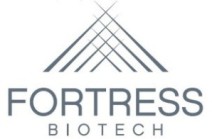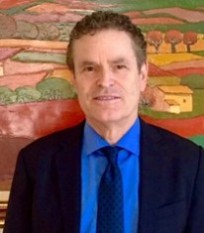
© CEOCFO Magazine -
CEOCFO Magazine, PO Box 340
Palm Harbor, FL 34682-
Phone: 727-
Email: info@ceocfocontact.com


Search





Business Services | Solutions
Medical | Biotech
Cannabis | Hemp
Banking | FinTech | Capital
Government Services
Public Companies
Industrial | Resources
Clean Tech
Global | Canadian
Lynn Fosse, Senior Editor
Steve Alexander, Associate Editor
Bud Wayne, Marketing
& Production Manager
Christy Rivers -







 Print -
Print -
Insights on Navigating Biotech Market Challenges from Fortress Biotech’s Lindsay Rosenwald
 Lindsay A. Rosenwald, M.D.
Lindsay A. Rosenwald, M.D.
Chairman, President & Chief Executive Officer
Fortress Biotech, Inc.
NASDAQ Capital Market: FBIO
https://www.fortressbiotech.com/
Contact:
781-
Interview conducted by:
Lynn Fosse, Senior Editor
CEOCFO Magazine
Published – August 24, 2020
CEOCFO: Dr. Rosenwald, you have a long career in life sciences. What stands out for you and what might people not recognize was important in getting to the point where you are today?
Dr. Rosenwald: The biotech industry is thriving and chock full of incredible opportunities for science and medicine. The business opportunities are limitless, and every day brings new possibilities. If you run the business properly, not only is it financially worthwhile, but the good you do for people is incalculable.
CEOCFO: How are you are able to handle tough times and how did you learn the business side, as it is clear you started from the scientific side?
Dr. Rosenwald: The business side is common sense, trial and error, and perseverance. Nothing is easy. It is a very risky business and you are dealing with almost limitless numbers of variables, whether it is science or manifestations of what can go wrong in drug development. Beyond that, you have the overlay of politics, the economy and competition. Everything is changing so you have to be incredibly flexible, and you need to have a goal. As long as you focus on that goal then everything else usually comes together one way or another.
CEOCFO: Would you tell us about Cougar Biotech and the recession of 2008-
Dr. Rosenwald: To put it in perspective, I have licensed well over 100 clinical-
Cougar Biotech is a great example, which is a deal I did in 2009. The drug came from BTG, a small biotech company in Great Britain. They had a small molecule for prostate cancer with a very interesting mechanism of action, but more important to me as a physician and not a PhD, was the clinical data. The data showed that even though they had been in a small number of terminally ill metastatic prostate cancer patients that were refractory to all available therapies, when those patients received this pill, half of them had dramatic responses, which showed us that there was real activity. When you see activity within patients that have no hope, and I think these patients in the Phase 1 trial where the study was done were even in hospice, that tells you that you may have a strong drug candidate.
One of the reasons the drug was available was that there were no patents. I have done very well over the years acquiring rights for clinically successful drugs that do not have patents. A lot of our competition for licenses comes from big drug companies and big venture capitalists, and generally they do not want a drug that does not have a patent. We bought the drug pretty inexpensively, at about a $500,000 investment. We took that company public, conducted a small Phase 2 clinical trial and then started the Phase 3 trial. Then we sold the drug to Johnson & Johnson for a nice deal.
CEOCFO: Is there one that got away?
Dr. Rosenwald: Yes, there were lots of drug candidates that got away because we do not want to spend a lot of money on these licenses. I have a lot of discipline and would rather invest in a big team with more programs. We do lose programs because we are not willing to get involved in auctions or processes. The beautiful thing about this industry is that it is moving so fast. If you think about it, the top 15 drug and biotech companies in the world have a combined research and development budget of over $100 billion dollars, so you can imagine what the global research and development budget is for life science – it gets into the hundreds of billions. Science and technology is moving quickly, so there are new leads every day. It is hard to keep up with everything, so Fortress Biotech has a lot of people looking for things in our sweet spot, which is in human trials.
We did a deal earlier this year with AstraZeneca, as they have an excellent small molecule candidate in neurology for seizure disorders. They had already tested it in 500 patients. We saw the drug, went through the data and liked what we saw. In other cases, we acquired drugs that have been in two patients. Ultimately, it does not matter how many patients are in a study or if we lose deals because there is always another deal right around the corner. And when I say right around the corner, I mean within the next hour. Fortress Biotech finds lots of opportunities every day.
CEOCFO: What is the focus at Fortress Biotech today?
Dr. Rosenwald: Fortress Biotech has about 15 clinical-
The goal for Fortress Biotech is to keep the current pipeline of drugs moving ahead, as fast as possible and with as high quality as possible. While we focus on clinical programs, we also have some intriguing preclinical programs that we plan to move ahead. At the same time, I think we are probably evaluating a couple dozen programs that have moved on to some degree of due diligence. My guess is, out of those programs, there may be up to eight more licenses that could be had in the next six to nine months.
In addition, we have a dermatology franchise, Journey Medical Corporation, which is one of the Fortress Biotech partner companies. We have 42 salespeople who are drug representatives that sell these dermatology products to physicians. Fortress Biotech and its partner companies have stellar management teams. Fortress’ product revenue has grown at least 50% per year for the last four years and we anticipate continued high revenue growth this year and next.
CEOCFO: Why did you branch out in that direction and do you see more potential ventures that are not strictly in the drug development arena?
Dr. Rosenwald: At Fortress Biotech, we will go anywhere where we think the risk/reward benefit is good for our company and our stockholders. Most life science companies focus on a specific therapeutic area like cancer or cardiovascular disease, but we do not do that. Fortress Biotech is focused on clinical trial data. Other companies will focus on mechanism of action.
At Fortress Biotech, we cast a very wide net. What we care about is compelling clinical data that we believe will allow us to finish the development of a drug candidate in order to get it to a market where there is a meaningful unmet medical need so that it has commercial viability.
This has been our model at Fortress Biotech for five years now. We have done around 35 licenses and product acquisitions at this point. If you look at all the different drugs and drug candidates we have at Fortress Biotech and our partner companies, it would look like an industry pie chart. Half of what we are doing is oncology, and we are in many therapeutic categories. We do not have a preconceived notion of what we want to go into, we are just looking at the data.
CEOCFO: What, if anything, has changed for you under the COVID-
Dr. Rosenwald: With our dermatology business, Journey Medical Corporation, we have 42 salespeople and the business was growing rapidly in the second quarter. Like many pharmaceutical companies in America, our sales force had to stay home for several months. Other than that, I cannot say that there has been much of an effect. Our productivity at Fortress Biotech has not missed a beat, and people are still working hard.
CEOCFO: How do you decide when to pull the plug on a program?
Dr. Rosenwald: It depends on the situation. You pull a program usually when the data are not what you think they should be or you find out there is something better that came along that makes your drug candidate obsolete. Those are two very rare events.
There are not that many drugs approved each year in the United States, so when you do get a drug approved, it tends to have a monopoly effect. From a business perspective, we are not that worried about competition. Things happen and you have to be willing to make a tough choice to terminate a program if you do not think it is going to be successful.
CEOCFO: How does the investment community look at Fortress Biotech; do they understand your approach and are they rewarding you for it?
Dr. Rosenwald: As the saying goes, “In the short-
People are starting to understand the value of the Fortress Biotech business model. Every time we buy another drug that we can market or license, another development-
CEOCFO: What might be coming up at Fortress Biotech that excites you right now?
Dr. Rosenwald: We have a drug that we hope will be approved in the fourth quarter, for post-
Last but far from least, I have a good eye on our business development pipeline. I meet with my team daily to review and evaluate different programs. At Fortress Biotech, we have several programs that we think we will execute before the end of the year. We believe this will increase the intrinsic value and decrease the risk. What is most exciting is at Fortress Biotech and in biotech, you do not know today what opportunity is going to show up. My team shows me another exciting program almost every day.
Fortress Biotech, Inc., Drug Development Companies in USA, Drug Development Oncology, NASDAQ Capital Market: FBIO, Lindsay A. Rosenwald, M.D., Insights on Navigating Biotech Market Challenges from Fortress Biotech’s Lindsay Rosenwald, CEO Interviews 2020, Medical Companies, Public Companies, Drug development companies, drug development for oncology, hematology, gene therapy, neurology, pain management, rare diseases, infectious diseases, dermatology, CNS disorders, central nervous system disorders, treatment for post surgical acute pain, Menkes Disease, X-
“Fortress Biotech and its partner companies have stellar management teams. Fortress’ product revenue has grown at least 50% per year for the last four years and we anticipate continued high revenue growth this year and next.”
Lindsay A. Rosenwald, M.D.